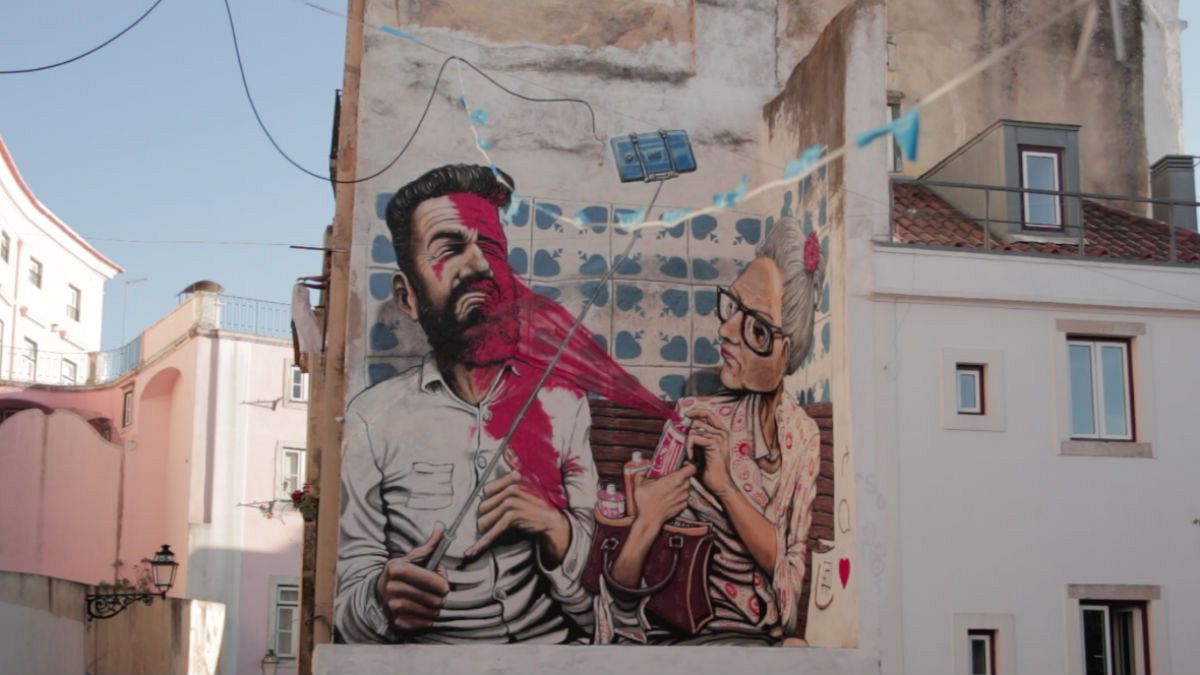Portugal’s capital attracts millions of tourists every year looking for local authenticity, but the same phenomenon is escalating real estate prices and forcing residents out
Mr António lies comfortably on his windowsill in Alfama, one of the most authentic and typical neighbourhoods of Lisbon, happily greeting people who pass by.
The picturesque landscape takes you back to the past, with its Moorish, Jewish, and medieval influences, attracting thousands of tourists every day, who are now almost more numerous than locals, and bringing with them new social dynamics, businesses and gentrification.
“Initially, we received a note saying that someone was interested in buying the house. A year later, we received an eviction note, saying that our rental contract would not be renovated and that the renovation work would soon start.”
Lisbon, a small capital city with around half a million inhabitants, welcomed around 5.6 million tourists in 2016 alone, a 7.6% increase compared to the previous year, and recent numbers by the Statistics Portugal Institute show that 2017 is seeing a similar increase.
The tourism industry generated a national record of €12,68 billion in 2016, according to the Bank of Portugal, and played a crucial role in saving the Portuguese economy, which was severely hit by the 2008 economic crisis.
Despite this financial boost, tourism has been under criticism, particularly due to the negative social impact it has created amongst local populations in Lisbon and Oporto’s city centres, contributing to gentrification, a well-known phenomenon in other European capitals such as Barcelona, Amsterdam and London.
The problem has a name: “terramotourism” or tourism earthquake .
According to António Machado, president of the Rental Association in Lisbon, the 2012 Lease Law implemented by the previous centre-right government coalition is to blame for the current housing issues.
‘We have seen a transformation of housing from residences for families to short-term rentals…private houses rented out for tourism that, in some areas, caused rent price to rise by 30-40 % over the last few years, which is practically unbearable for local Portuguese people.’
Airbnb rentals have been on the rise, seeing a hike of 67% rental growth in the last year.
At least 73% of the Airbnb properties on offer in Lisbon are entire apartments with an average daily rate of 84€, therefore guaranteeing more profitability than traditional, long-term rental solutions.
So far, little has been done by the government to control this phenomenon, unlike in other European cities such as Amsterdam, where a property can only be listed on Airbnb for a maximum of 60 nights per year.
According to the real estate consultant CBRE, in 2016 the average rent in Lisbon was 830€, which shows an increase of 23% in comparison to 2015.
With an average gross salary of 914€, progressively more locals are pushed out to the suburbs as they cannot afford housing in the city centre.
Carla, a 37-year-old mother of two with a monthly income of €500, has recently received an eviction notice to leave her home in Patio do Carrasco, right in the heart of Alfama, for which she is paying a 270€ rent.
Her small apartment with an external toilet is part of a medieval apartment block that was recently bought by a real estate investor who wants to transform it into short-term rental accommodation.
Despite all residents receiving the same notification, Carla is the only one who is legally not protected due to her young age and contract duration.
Her application for social housing at in Lisbon was rejected as she did not meet the minimum requirements.
“I’m not against tourism. I’m against the exploitation of houses for tourism, that is pushing people born in Lisbon outside the city.”
Davide Mancini
Catarina Gomes
